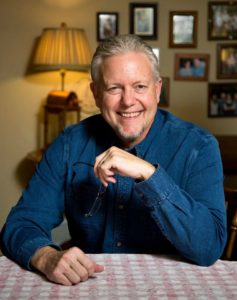Charles Wesley was right.
Jesus was long expected both times.
Why do I say that? Watch our Truth in Two to find out (full text below).

Subscribe to MarkEckel.com (here). Find the MarkEckel.com YouTube Channel (here). Mark is President of The Comenius Institute (website). Dr. Eckel spends time with Christian young people in public university (1 minute video), teaching at Indiana University Purdue University at Indianapolis, and interprets culture from a Christian vantage point (1 minute video). Consider becoming a Comenius patron (here).
Picture Credit: Luke Renoe, Snappygoat.com
FULL TEXT
We do it once a year. Decorations go up. Trees are sold. Families gather. Schools close. Carols are sung. Gifts are given. Christmas is a season that sparks great joy. Each person, each group may celebrate the season for different reasons, but our Hebraic-Christian view of Christmas looks in two directions.
Initially, we look back at all the First Testament prophets who looked ahead. Hundreds of prophecies anticipating a prophet, a priest, a king, a messiah, a savior, were all fulfilled at Jesus’ birth. Additionally, we look ahead with the First and Second Testament prophets and apostles to the promise of a renovated world; a world where suffering and sin will cease, a world where Jesus rules eternally.
Both the history and the hope of Jesus’ first and second arrivals is well summarized by Charles Wesley’s hymn “Come Thou Long Expected Jesus.” I believe the hymn expresses our earnest hope based on the facts of history: the surety of Jesus and His soon return.
Come thou long-expected Jesus, / Born to set Thy people free;
From our fears and sins release us, / Let us find our rest in Thee.
Israel’s strength and consolation, / Hope of all the earth Thou art;
Dear Desire of every nation, / Joy of every longing heart.
Born Thy people to deliver, / Born a Child and yet a King.
Born to reign in us forever, / Now Thy gracious kingdom bring.
By Thine own eternal Spirit / Rule in all our hearts alone;
By Thine all-sufficient merit / Raise us to Thy glorious throne.
At the Comenius Institute we believe in both history and hope, in Jesus’ first and second arrivals to earth. All the decorations, presents, meals, singing, and gifts during Christmas look back to Jesus’ first coming while we anticipate His coming again. For all of us at the Comenius Institute, I am Dr. Mark Eckel, personally wishing everyone a joyous Christmas.




















